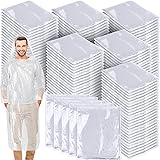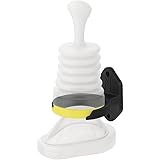The Best Practices for Long-Term Food Storage
Here are the top 4 semantic keyword phrases I’ll be covering:
- How to store food for long-term use
- Essential containers for food storage
- Best food items for long-term storage
- Maintaining food quality over time
How to Store Food for Long-Term Use
Understanding the Basics of Food Storage
When it comes to food storage, I always keep it simple. First things first, you need to know what we’re dealing with. Different foods have different shelf lives, and it’s crucial to match the storage method to the food type. Honestly, it’s like playing a game of chess; you have to think a few moves ahead.
Temperature is a big player in this game. Keeping food stored at a constant cool temperature, ideally below 70°F, can extend shelf life significantly. Make sure your storage area is dry and dark because light and moisture can be the arch-enemies of your food. I like to stash my items in a cool basement or a sealed closet, where the temperature is more controlled.
Another key component? Organization. Label those containers with dates and types of food. It helps you to rotate your stock and ensures you use older items first. It’s a hassle to sort through jumbled-up containers, so take the time upfront to make life easier. Trust me, future-you will thank present-you for this effort!
Advanced Tips for Effective Storage
Now, if you’re feeling adventurous, try vacuum sealing. This nifty technique kicks out the air from packaging, which can significantly prolong the life of your food. I find that it’s especially useful for items that are prone to freezer burn, like meats and some fruits. Plus, vacuum-sealed bags take up less space, which is always a win!
Apart from vacuum sealing, I always keep a close eye on the condition of my stored food. Checking for any signs of spoilage, like off smells or mold, is super important. Even with the best methods, a little vigilance goes a long way to ensure everything stays fresh and safe.
Lastly, don’t forget to keep an inventory. A simple spreadsheet or even a handwritten list can help you stay organized. It lets you know when it’s time to replenish supplies or when something is nearing its expiration date. This way, you can plan meals better and avoid any unwanted surprises.
== > What if ... Get a FREE Subscription to PREPARE
Essential Containers for Food Storage
Choosing the Right Containers
Let’s dive into containers because they’re like the unsung heroes of food storage. First and foremost, avoid using flimsy plastic bags that can easily tear or leak. I opt for sturdy glass or BPA-free plastic containers. They may cost a bit more upfront, but let me tell you, they’re worth every penny in the long run!
For dry goods, I love mason jars. They not only look cute but also create an airtight seal that keeps moisture and pests at bay. Plus, they’re easy to label! Just a quick piece of tape and a marker, and you’ve got a fantastic storage system that looks good and works even better.
If you’re storing larger quantities, consider food-grade buckets. They’re fantastic for bulk items like grains or beans. Just make sure to use a Mylar bag inside the bucket for added protection against oxygen and moisture. It’s a bit of prep work, but totally worth it for long-term storage.
Creative Storage Solutions
Let’s get a little crafty! If you’re short on space, think vertically. I like using shelves or stacking bins to make the most of my storage area. It gives everything a designated spot and makes it easy to see what you’ve got without having to dig through everything.
Also, consider repurposing things you already have around the house. Old jars can work wonders for spices or small snacks, and empty containers from store-bought goods can be cleaned out and reused for other items. Get creative—it can be a fun project!
Lastly, remember to keep things accessible. There’s no point in having your food stored away if you can’t get to it when you need it. Make sure your more frequently used items are at eye level, while the less used ones can hang out on the highest shelves.
Best Food Items for Long-Term Storage
Staples that Stand the Test of Time
When it comes to long-term food storage, choosing the right staples is essential. I’ve found that items like rice, beans, pasta, and oats make fantastic base ingredients. Not only do they last for years if stored correctly, but they’re also incredibly versatile for creating various meals.
Canned goods like vegetables, fruits, and meats are also excellent options. The beauty of canned food is that it’s ready to eat or incorporate into meals without much fuss. Just be sure to check the expiration dates periodically, as they can vary significantly.
Don’t overlook freeze-dried foods either! They have an outstanding shelf life and retain a good amount of their nutrients. Personally, I keep a few freeze-dried meals on hand for practice emergency situations or when we’re just too busy to cook.
Preparing Foods for Long-Term Storage
Prepping your food before storing can make a world of difference. If you opt for fresh fruits or veggies, ensure you wash, cut, and then quickly freeze them to maintain their viability. Flash freezing is a technique that prevents clumping, making it easier to portion out later.
For meats, I always recommend portioning out into single-use packs before freezing. It saves room in your freezer and allows you to defrost only what you need. Plus, marinades can work wonders to add flavor before storing. Just pop them in a bag with your favorite marinade, and you’re set!
One of my favorite tips is storing herbs. I chop them up and mix them into ice cube trays with some olive oil. Once frozen, I transfer them to a bag. This makes it super easy to throw a cube into a pan for instant flavor. It’s a game-changer!
Maintaining Food Quality Over Time
Understanding Expiration Dates
Expiration dates can be downright confusing, huh? I used to fret over it until I learned that many foods can be consumed well past their labeled dates if stored correctly. (Always use common sense, though!) Canned foods, for instance, can last for years if maintained in a cool, dark space.
It’s also important to understand the difference between “best by,” “use by,” and “sell by” dates. “Best by” refers to quality, not safety. So, if it’s a little past the date but the can is in good condition, you’re likely fine to use it.
To become your own quality-control manager, I recommend conducting regular checks of your food supplies. Every few months, take a peek at what you’ve got and make sure nothing is being overlooked. Rotate your stock and toss anything that might not be holding up as well as it should.
Keeping Your Storage Environment Optimal
Creating the perfect environment for your food is non-negotiable. Ensure your containers are sealed tightly to keep pests out. I cannot stress enough how annoying it is to find a mouse nibbled through a bag of flour! It’s gross and a waste of food, so invest in proper sealing.
Humidity plays a big role too—ideally, keep it below 15% for dry goods. If you live in a humid area, consider using desiccants or moisture absorbers in your containers. It might seem excessive, but your food will thank you for it!
Finally, don’t forget about the power of sunlight! Exposure can degrade food quality over time. Keep your food in a dark area or at least out of direct sunlight. A little extra effort here goes a long way in extending the longevity of your stored items.
FAQ
1. How long can I expect my stored food to last?
It really depends on the food item and how you store it. Some staples can last years, while others may only last a few months. Checking labels and following best practices can help you maximize the shelf life of your food.
2. Can I freeze any type of food for long-term storage?
While many foods freeze well, some do not. Dairy products may separate, and certain fruits can become mushy. It’s best to look up specific foods before tossing them in the freezer!
3. What should I do if I find spoiled food in my storage?
If you find anything spoiled, it’s essential to discard it right away to prevent any contamination. Always check other nearby items for potential moisture or pest issues and address them as needed.
4. Are there any foods I should avoid storing long-term?
Avoid items with high moisture content unless they’re properly canned or dried. Fresh fruits and vegetables don’t typically store well long-term unless you dehydrate or freeze them. Stick with shelf-stable options!






